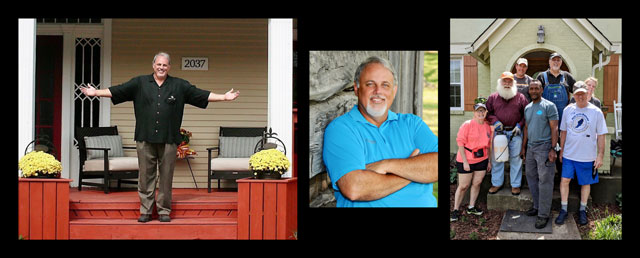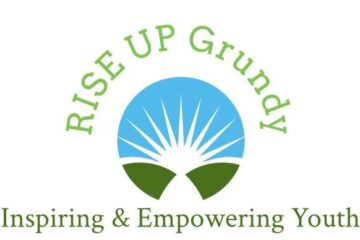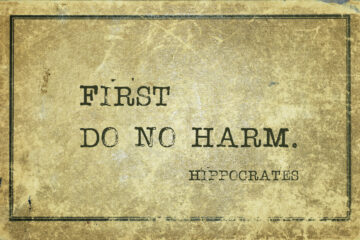HOME, the place where your heart is; the place where you hang your hat; the place where you grew up; the place where you’re always loved and welcomed—no matter what
HOME, the place where you’re silenced and beaten; the place where you witness and experience carnage; the place where you hide—waiting; the place where you’re just another mouth to feed, where you learn you’ll never amount to anything; the place for someone else’s sins against your innocence; the place from which you long to escape
HOME, the place where it all begins: the responses, the reactions, the absorbed habits of those who live in or visit; the experimentations you try in order to escape; the place where your heart hurts and maybe even the place where you learn to hate; the place where you begin self-destruction
HOMELESS, the eventual place of escape. Weeks or years get you to homelessness, leaving your own trail of carnage behind and always residing within; looking for the place to be loved and to love, to be valued and useful, the place to fit in, the place to be free from horrendous memories and free of self-destruction; always longing for someone—anyone—to say, “Welcome Home!”—and mean it.
Many factors contribute to addiction. Family history, association with others who are abusing substances, trauma, poor coping skills, mental illness, and spiritual depravity are just a few. Regardless, where do homeless men go when there’s no place left to go? After they’ve burned all their bridges? When addictions, incarceration, and lifetimes of bad choices have closed all the doors once open to them? When no one is willing to take them in? At the end of the road, where do homeless men go?
If that road brings them to Nashville and if they are serious about wanting to change their lives, they have an option: Welcome Home Ministries will give them the opportunity to create new lives, learn new skills, rejoin the workforce, develop inner strength, and participate in community.
Those opportunities and Welcome Home Ministries are the result of one man’s dream and the support of others who believed in him and his dream. It is a faith-based nonprofit alcohol and drug recovery support ministry. While WHM emphasizes 12-step principles, biblical teachings are its foundation, anchored with powerful structure administered with much compassionate care in a 24/7 transitional recovery housing environment and sober living community. Residents must progress through six levels within the structured living environment prior to graduating to a level of consideration for accountable yet independent living within a supportive sober living community of graduates.
By 2016, WHM owned and operated a total of seven recovery residences: five transitional recovery residences, including a residence exclusively dedicated to provide housing for veterans and two permanent supportive recovery residences for men who successfully graduate from an alcohol and drug recovery program. Transitional recovery housing serves residents 24 hours a day, 365 days a year. Six levels in the transitional recovery housing program take approximately six months to complete. However, WHM encourages residents to stay at least a year to establish a stable foundation for their recovery.
For Daryl Murray, a 1985 alumnus of Trevecca Nazarene University and founder of Welcome Home Ministries, starting a ministry to help men who were at the bottom of life was a dream born of his own mission experiences. Daryl’s purpose was clear. God was calling him to move beyond the comfort of his blessed Christian upbringing to action through outreach to men who suffer from substance use disorders. Daryl learned that regardless of how one becomes addicted, the brain, body, and spirit are negatively impacted.
After marrying Glenda Miller, a 1986 alumna of Trevecca, Daryl served another year in ministry in New York City but dreamed about helping men get off the streets. He went to work for East Nashville Cooperative Ministries (ENCM) and Right Turns, both serving the less fortunate. During this time Daryl met Randall Phillips, owner of Phillips Builders, who offered him the use of some apartments to house men who had graduated from recovery programs, but Daryl knew that a better place to live would not solve these men’s problems. He knew they needed training in spiritual formation, in the spiritual principles behind the twelve-step programs they attended, for living in community with others like them, and for seeing God and His work in their lives. Daryl’s dream about starting a ministry for men was taking shape. He presented his dream to four friends—Tim Green, Dave Clark, Danny Eaton, and Kent Hughes—since sharing his dream with good friends was paramount to him. God’s spirit continued moving these men “to enter worlds of brokenness in order that all might experience wholeness in Jesus Christ.”Little did Daryl know that 27 years later God would continue to use Welcome Home Ministries as a beacon of hope and an instrument of grace.
Ministry Coming Together
Welcome Home Ministries’ Board of Directors decided that the organization needed to own a house in which recovering men could live. The next day RandallPhillips called Daryl and asked, “What are you doing?” When Daryl told him what board members had decided and that they were going to ask five men to give $5,000 each to purchase a house, Phillips responded, “I’ll give you the first $5,000, and I’ll match donations to $50,000.” Phillips’ generous support enabled the organization to purchase its first house in East Nashville in 1998; today WHM owns a total of eight houses, most of which were renovated by the men in WHM.
Some often-repeated phrases echo the hopelessness of men applying for residency in WHM recovery homes: “I’m sick and tired of being sick and tired.” “I need structure in my life.” “I can’t do this on my own.” Family members and loved ones are also “at the end of their rope” and “don’t know what to do.” It’s a terrible place to be but a wonderful place to start: Like the biblical prodigal son, desperation becomes forced humility “when he came to his senses” (Luke 15:17). “He was sick and tired of being sick and tired.” Men at WHM learn they don’t have to remain sick and tired in the pig pen of their mess. However, if they do want to change, they must cooperate with what God wants to do in their lives. Based on biblical principles, WHM’s method is compassion and grace with an informed understanding of addiction. Every aspect of the ministry is grounded in faith, the foundation that supports its daily functioning. Since 1992, WHM has walked this journey with those courageous enough to take those first steps. With Grace, Truth and Time, people do recover.
Noting that relapses are common, Daryl narrates a successful recovery story: “George, who says he was the ‘town drunk,’ ate out of dumpsters and had a rap book with the police, but he’s been with WHM for ten years and now works with men who are like he was.” George is a prime example helping others. House Managers become the eyes and ears of the program and have one of the most difficult and critical roles in the ministry. They are residents in recovery who live 24/7 with other recovery residents, monitor the daily activities of recovery residents, and carry out appropriate accountability procedures if guidelines are not followed.
Welcome Home Works
Welcome Home Works was created in 2002 to help the men in the WHM addiction recovery program re-enter the work place. Nowadays, attention is focused on creating a great network of employment specialists and employment opportunities. Cultivating relationships and collaborating with employment agencies enhances workforce development. Even though many clients have a criminal history and often struggle with mental health conditions, Welcome Home Works has developed a solid track record of helping clients seek and find gainful employment.
Next Steps Welcome Home Ministries realizes that self-sufficiency is vital to recovery. When clients graduate from recovery support programs, they can continue to take responsibility for their long-term recovery and demonstrate a healthy pattern of living by staying involved with their sponsor, continuing to participate in recovery meetings, and remaining focused on their physical, emotional, and spiritual wellbeing. Additionally, recovery program graduates may need assistance to become reestablished in the community. With help to secure subsidized permanent housing, graduates more likely plant their feet in responsible and productive citizenship.
Transitional Recovery Housing
WHM men first move into one of three transitional homes, one housing only veterans. Each home has nine beds. When they meet their goals for six months and if they pass the interview process conducted by the residents of that building, the men can graduate into an apartment in the quadplex.
Coming to WHM primarily from drug treatment centers, the men must make a six-month commitment to get a job, cooperate with a sponsor, pay rent, and attend five meetings each week (AA, NA, or other twelve-step programs; Bible studies; and two in-house meetings weekly). WHM provides them with a membership to the YMCA, Internet access, and clothing, and it encourages them to go to church. WHM puts 35% of the men’s weekly rent ($120) into a savings account for each of them, and when they graduate from the program, WHM returns those savings to the men—to purchase a car, make a deposit on an apartment, or pay child support or bills. Many of the residents need physical and/or mental health treatment when they enter the recovery support program. WHM partners with Neighborhood Health to provide mental health support—Intensive Outpatient (IOP) support five days a week.
The following snap shot of the transitional recovery housing program provides the sequence: A person who enters the recovery program begins as a Guest. A guest is anyone within the first two weeks of the recovery program. The individual is required to be in the house whenever he is not working, looking for work, attending meetings, or has permission from the house manager to be somewhere else. A guest must complete at least four hours of audio/visual enrichment, attend a minimum of five meetings per week (including two mandatory in-house meetings), faithfully observe an 8 PM curfew, complete at least one community hour for each week in the recovery program, seek employment, and remain current on rent. All requirements must be met prior to progressing to a higher level within the community (Freshman, Sophomore, Junior, Senior, and Graduate status).
Veterans’ Recovery Contract Housing
In January 2011, Welcome Home Ministries began a new ministry of outreach to Veterans of War in partnership with the Department of Veterans Affairs. WHM was the first “Contract Housing” provider in Middle Tennessee to provide a Safe Haven for homeless veterans in need of long-term alcohol and drug recovery support services. Welcome Home Ministries is honored to provide an exclusive recovery residence for veterans. Veterans’ Recovery Program is a mirror image of the transitional recovery housing program. All residents must abstain from alcohol and drug use and are subject to the same requirements as other recovery housing residents. Encouraging long term recovery support for veterans, the VA works with qualified veterans to obtain permanent housing through the Veterans Affairs Supportive Housing (VASH) program.
Graduate Permanent-Supportive Recovery Housing
Individuals who wish to maintain their sobriety in a supportive community of accountability may enter Permanent-Supportive Recovery Housing. Eligible individuals who have successfully completed an alcohol and drug recovery support program must have at least six months of sobriety. Residents enjoy independent living with less structure than transitional recovery housing residents. However, all residents must make a commitment to maintain their sobriety and hold themselves accountable to others in the sober living community. In the Spring of 2012, WHM completed renovation on its second Graduate Recovery Residence, bringing its total capacity in two permanent supportive graduate recovery residences to 12 beds. Since these residences are not transitional recovery housing, residents may stay indefinitely. This program model has proven successful in helping individuals maintain long-term sobriety, as well as prevent recidivism to homelessness. All permanent supportive recovery housing residents must abstain from alcohol and drug use. They must demonstrate self-sustainability and pay monthly rent. Monthly meetings are held to discuss concerns as well as offer residents the opportunity to meet for support.
Christmas for the Guys
Each year WHM hosts a special celebration. Residents, staff, and board members come together for dinner at a fancy restaurant as a way to express our love. We sing; Santa visits; and we provide $100 gift certificates to each resident, funded by our generous donors. Many residents say they’ve never attended anything like this and that it’s the first time they’ve eaten at a nice place.
Awards and Goals
After receiving several significant awards, Daryl comments, “These awards are nice, but I have other dreams to accomplish: My dream is for WHM to pay off all its properties. God has put wonderful opportunities in our laps—not the result of our efforts. The need is great. We turn away men every day.” Daryl’s dream is incomplete; Nashville needs your help.
Welcome Home Ministries: the place to be free from self-destruction; the place where someone says, “Welcome Home”—and means it!
| Welcome Home Ministries—Quick Facts Since the establishment of Welcome Home Ministries’ first recovery residence in 1998, WHM has touched the lives of approximately 2,000 men with compassionate care, love, grace, and the gospel of Jesus Christ. Lives have been transformed and literally “saved,” physically, spiritually, and most importantly, for eternity. Since 2011, WHM has experienced exponential growth. The ministry has grown from 24 to 68 beds (183%) in eight recovery residences with the most recent recovery home purchased July 23, 2019. The Recovery Residence has a total of 6,678 square feet under roof with 11 recovery beds and 1,400 square feet of flexible space to support WHM’s recovery activities and administrative staff needs. God is literally using WHM to save lives and as a vessel to save souls. If you desire to participate in Nashville’s Welcome Home Ministries, please make your check payable to Welcome Home Ministries and mail it or visit our website at www.welcomehomemin.org to make an on-line contribution.Thank you for your generous gift! |
| Welcome Home Ministries’ approach to addiction recovery is holistic—spiritual, physical, mental, and relational community. It’s ALL recovery! |
Sheila E. Moss: author of Living to Matter: Mothers, Singles, and the Weary and Broken; Interrupting Women: Ten Conversations with Jesus; and international publications from teaching Bible and Christian ethics in Africa, Ukraine, and Venezuela; teacher of Bible classes for over 35 years; mother of three daughters and two sons; and grandmother of eleven grandchildren.














